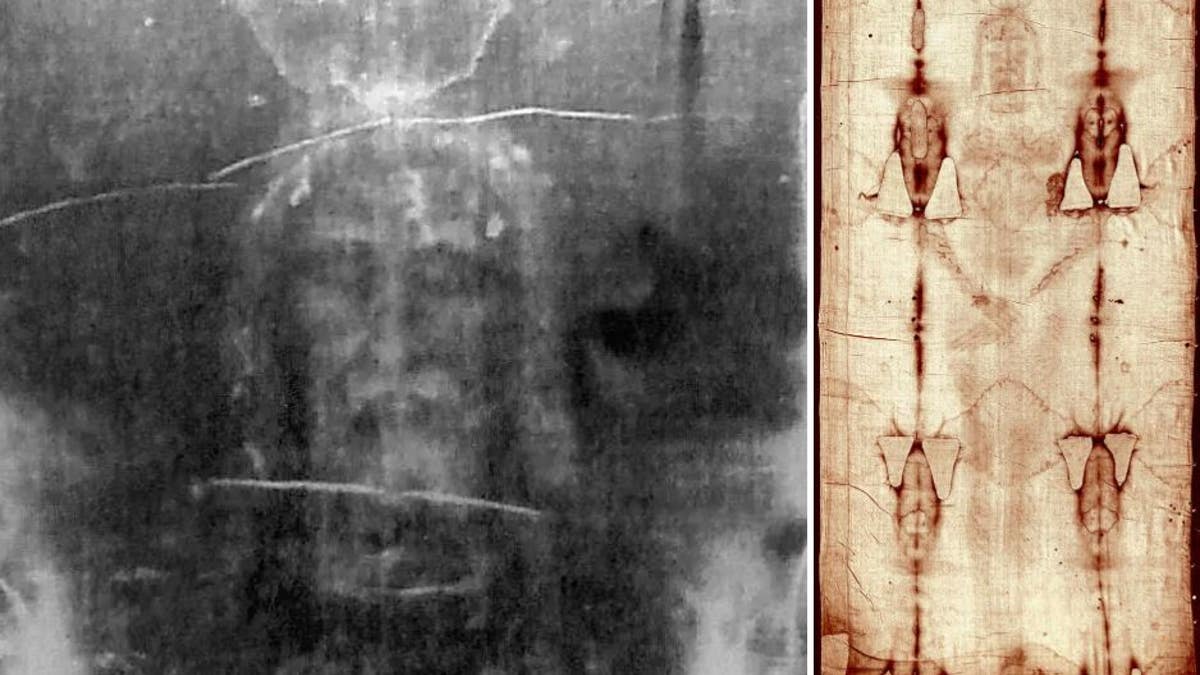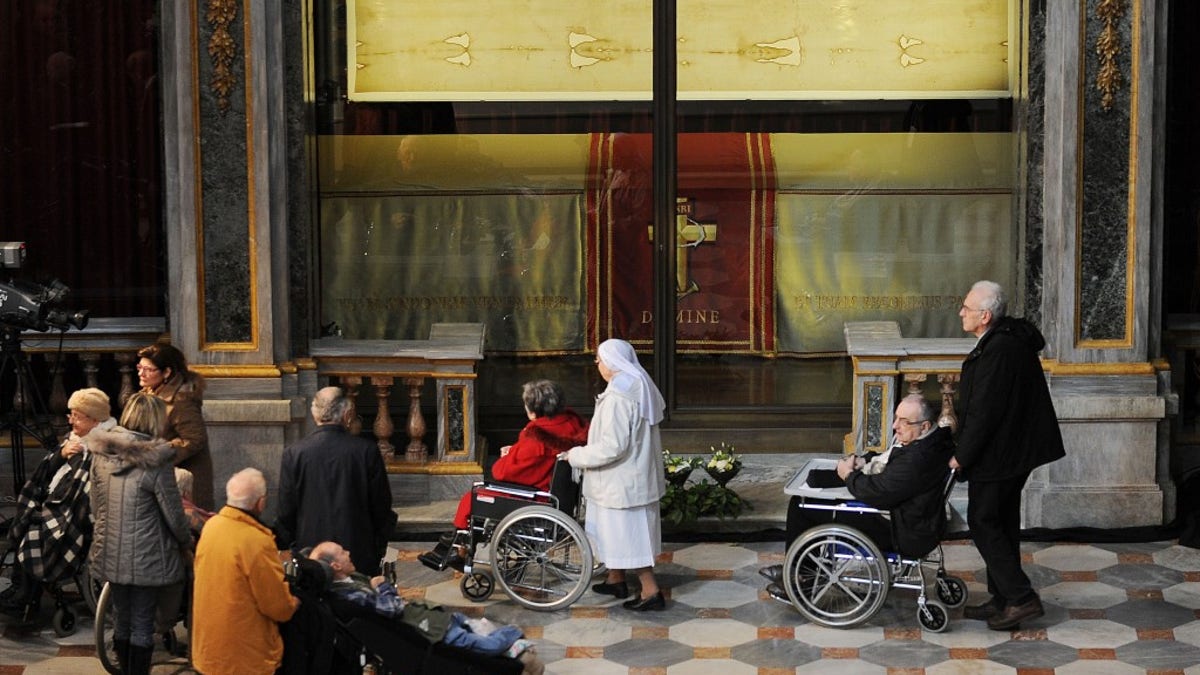Beyond Belief: Shroud of Turin
Is that shroud the actual burial cloth of Jesus or is it all just a brilliant hoax?
The Shroud of Turin, which has been revered by some Christians as the burial cloth of Jesus, could be a fake, according to a new forensic investigation.
The investigation into the bloodstain pattern on the cloth was reported Tuesday in the Journal of Forensic Sciences and is apparently the first such analysis of the controversial shroud.
Held in the Cathedral of St. John the Baptist in Turin, Italy, the shroud shows the image of a crucified man and has been analyzed and scrutinized for many, many years. The Vatican regards it as an icon, rather than a religious relic—and the church has never weighed in on its authenticity nor officially rejected it.
In 2015, more than 2 million people saw the Shroud of Turin, which is 14-feet-long, 3.5-feet-wide and kept in a bulletproof, climate-controlled case. The cloth has long been the subject of debate and study.

The Shroud of Turin has never been officially authenticated or rejected by the Catholic Church. (Wikimedia Commons)
Researchers concluded that the linen seems to be patched with bloodstains from a standing model, not a crucified man or a facedown corpse, reports BuzzFeed News, adding evidence to claims that it is a fraud.
“This is the kind of forensic work done all the time in police investigations,” Matteo Borrini, a forensic scientist at Liverpool John Moores University in the United Kingdom, told BuzzFeed News. “Even a crucified or hanging person should leave a distinct blood pattern on the cloth, which would be fascinating information to have.”
Borrini and his colleagues used real and synthetic blood samples to conduct seven different tests on different body parts depicted on the fabric. By pumping blood onto a model at wound points shown on the shroud, researchers could compare the angle that gravity pulled the liquid against the direction depicted on the linen. They found bloodstains that were inconsistent with any single pose, which seems to suggest a standing model was used to imprint the patterns.
11-MILLION-TON ICEBERG THREATENS TO INUNDATE TINY GREENLAND VILLAGE WITH TSUNAMI
If it was truly the death shroud of someone hung on a cross, or pulled down from one for burial, Borrini said, “the bloodstains shouldn’t be so inconsistent.”
BuzzFeed reports that researchers found forearm rivulets matched an arm held straight out around 90 degrees to the side, for example, while the hand marks matched an arm held out at about 45 degrees. Some hand bloodstains traced angles at odds with each other as well, off by as much as 10 degrees. A simulated spear wound in the chest ran in completely different patterns than the one on the shroud, whether standing or prone. “This is just not what happens to a person on a cross,” Borrini said.

Visitors pass by the Shroud of Turin on display at the Cathedral of St. John the Bishop in Turin, Italy. (AP)
“Overall, the approach is founded in science and the methodology sound,” bloodstain pattern expert Jonathyn Priest of Bevel, Gardner and Associates Inc. told BuzzFeed News.
However, Priest cautioned that the conclusions were based on body parts held in a fixed position, rather than accounting for carrying a body, cleaning a body, or preparing a body for burial, which might bear more study.
“The fact that flowing bloodstains exist at all on a deceased body that was reportedly cleaned also raises questions,” he added.
Although this latest research is not definitive, generations of the faithful will continue to be fascinated by the Shroud of Turin.









































